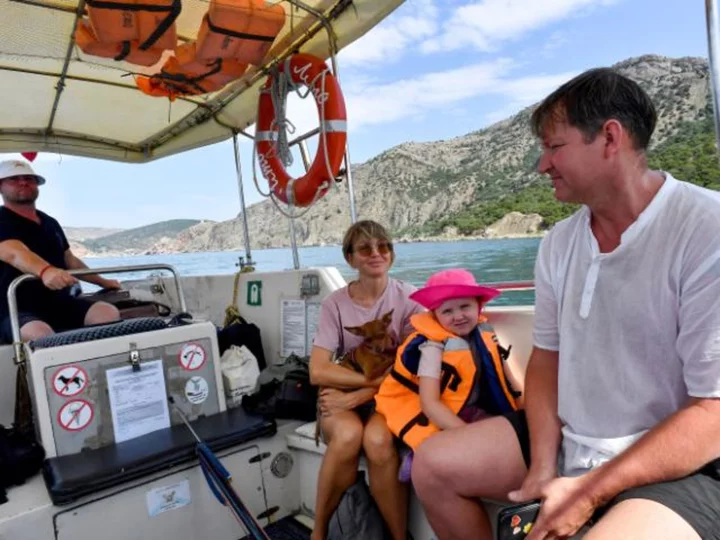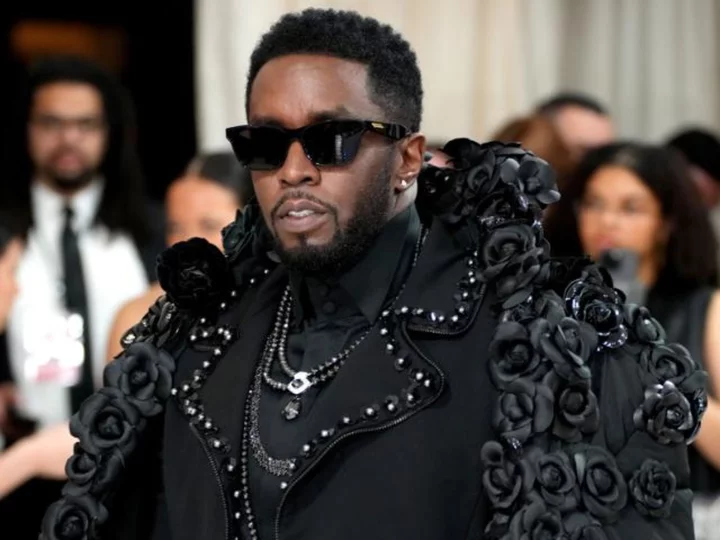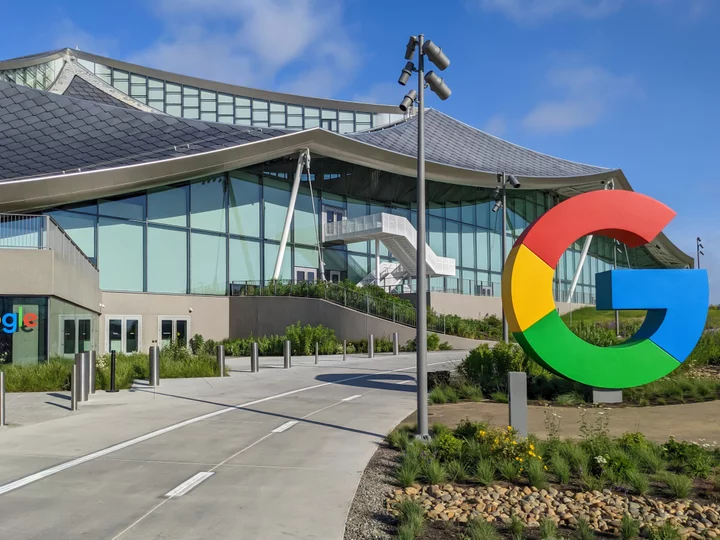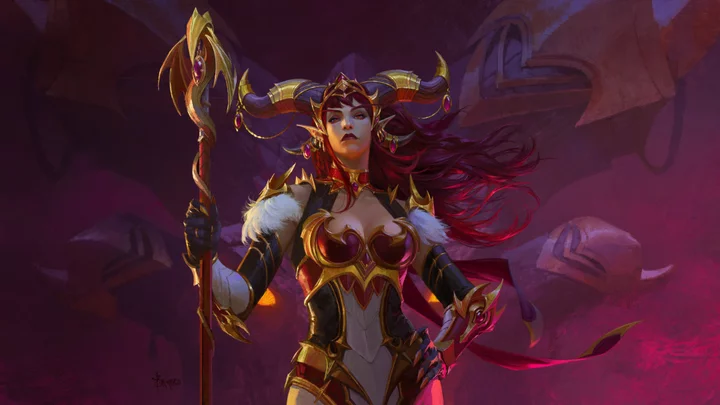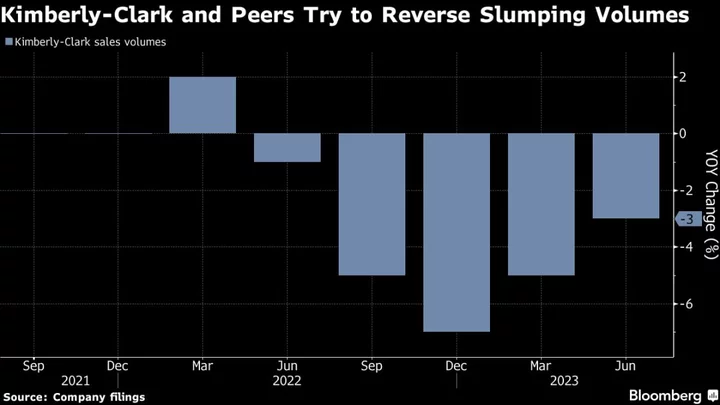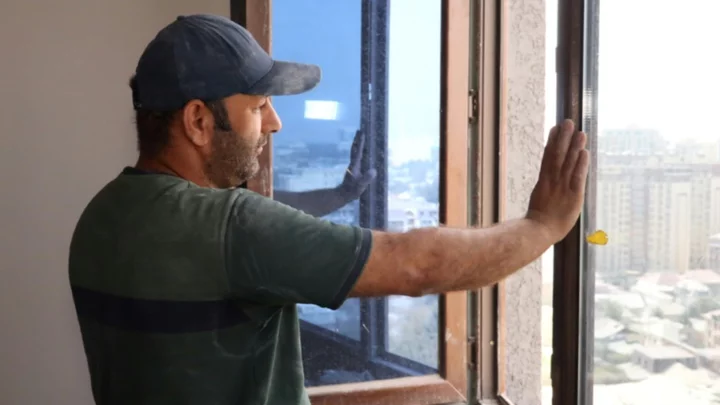For more than nine years, Russian tourists vacationing in Crimea didn't need to give much thought to the fact that their country was waging war on Ukraine - or that their sun lounger was parked on occupied territory.
But with Kyiv's counteroffensive underway, the southern Ukrainian peninsula is no longer the safe haven such holidaymakers had become accustomed to since Moscow annexed it in 2014.
Crimea has experienced a spate of attacks in recent weeks, including a seaborne raid by Ukrainian special forces on Thursday and a series of drone attacks on Friday. The bridges that connect Crimea to Russia and to southern Ukrainian areas under Russian control have been struck repeatedly in recent months.
Ukraine has claimed responsibility for some of these strikes and Defense Minister Oleksii Reznikov has warned its assaults will continue.
The attacks are forcing Russian tourists to reconsider their plans. Svitlana, a Russian woman who used to work as a manager at a tourist agency in Crimea, told CNN the security situation has caused her work to dry up.
Svitlana asked for her last name to remain private, as she was scared about the consequences of speaking to Western media. She left Crimea earlier this summer and moved to St. Petersburg in Russia.
"I recently went there again in the hope that everything will end soon and they will agree on something to end the conflict. But I stayed for four months and realized that nothing will end anytime soon," she told CNN.
"Tourism is all gone. There was less tourism last year and this year it has completely disappeared. Last year, tourists canceled reservations when it all started and this year they didn't even book," she said.
Crimea is economically dependent on the tourism industry, which is why the Russian-installed local authorities keep encouraging visitors to come despite the attacks. The Crimean Ministry of Resorts and Tourism has set up a new helpline for Russian tourists this summer and said it was working with hotels to make sure those who arrive or leave late because of security issues do not face additional charges or cancellations.
Tour operators and hotels are also offering heavily discounted trips and free perks to lure in more tourists. The Russian Union of Travel Industry said that hotel prices in Crimea have dropped by 30% this summer season compared to 2022 because of falling demand.
But the discounts are not working. The Russia-appointed administration said the average booking rate for August stood at 40%, meaning the majority of hotel rooms remained empty this summer.
Svitlana said that most people who are still vacationing in Crimea are booking low budget holidays, either camping or staying in the cheapest hotels or private accommodation. People who could afford to stay in the more upscale resorts are going to other, safer destinations.
She told CNN she did not enjoy her time in Crimea. "I'm so tired of the constant warplanes overhead, of the constant military in the city, of the wounded, of these poor people running away with frightened eyes, of the military equipment that almost crushed me a couple of times," she said, recalling an incident when an armored personnel carrier nearly collided with her car.
Popular destination
Crimea has always been popular with Russian tourists, many of whom remember vacationing there during Soviet times. But the number visiting the peninsula ballooned following Moscow's annexation in 2014.
While 5 million came in 2015, the first full year under Russian control, that number had risen to 9.4 million by 2021, according to the Russia-installed Crimean tourism ministry.
Svitlana still remembers the bumper season. "Profits brought that year were more than in the last 10 years. During the pandemic, people stayed at home and then rushed into (Crimea) when everything opened," she said.
Ukraine says the influx of Russian citizens hasn't been limited to tourism. Ukraine's Deputy Prime Minister Iryna Vereshchuk said in March that 800,000 Russians had moved to Crimea permanently since it was annexed.
The peninsula has seen a flow of cash from tourism and the Russian government, which has poured money into Crimean infrastructure.
Chief among these investments was the $3.7 billion Kerch Strait Bridge, Europe's longest bridge and a pet project of Putin. Its 2018 opening was hailed as the physical "reunification" of Crimea with the Russian mainland.
The 19-kilometer (nearly 12-mile) bridge made it even easier for Russian tourists to travel to Crimea at a time when the rest of the world had become a lot more expensive. Many Western countries imposed economic sanctions on Russia following the annexation, and the value of the ruble nosedived.
After Moscow launched its full-scale invasion of Ukraine in February last year, a number of countries closed their doors to Russian tourists. The European Union suspended its visa facilitation agreement with Russia, making it harder for Russians to apply for an EU visa. According to the Association of Russian Tour Operators (ATOR), trips by Russians to European countries were down by 88% in the first half of this year compared to the first half of 2019, the last year unaffected by travel bans or pandemic restrictions. There are no direct flights between Russia and the EU.
Crimea suddenly became one of the few sunny beach destinations Russian tourists could still visit without having to spend a lot of money.
"People come to Crimea because Europe is closed and prices are very expensive in Turkey now. Where else can we rest? Sochi (a resort city in Russia) is crowded, (and has) crazy prices. We have nowhere else (to go) so people go to the Crimea," Svitlana told CNN.
But the Kerch bridge's strategic and symbolic importance has made it an attractive target for the Ukrainians.
The first strike came last October, when a huge explosion severely curtailed road and rail traffic on the bridge. While Kyiv did not comment on the incident at the time, the Security Service of Ukraine (SBU) acknowledged in June that it was behind the attack.
Another major assault came last month, when a Ukrainian experimental sea drone caused serious damage to the road lanes of the bridge, and, according to Russian officials, killed two civilians.
The attack was frightening enough to scare away many of the Russian tourists who had still been planning to come. The Russia-appointed head of the State Council of the Republic of Crimea, Vladimir Konstantinov, said that 10% of holiday bookings in Crimea were canceled in the following days.
ATOR said hotel bookings dropped 45% in the second half of July compared to the first half.
Security on the bridge has increased following the attacks and ATOR said last month that on some occasions, traffic jams stretching for eight miles formed on it.
The authorities told tourists to avoid the bridge and travel instead through occupied Ukraine, a route that is about 800 kilometers (500 miles) long and cuts through numerous areas heavily impacted by the war, including Mariupol, which was nearly leveled by Russian bombardment last spring.
"There are military and police checkpoints along the route," the guidance tells tourists wanting to travel to Crimea through the occupied areas, adding that clearing each checkpoint shouldn't take "more than 10 minutes per vehicle." The guidance suggests bringing cash and downloading all maps in advance so that they can be accessed without internet.
The security situation is unlikely to improve any time soon.
Kyiv's forces have stepped up attacks in the past two months, striking both the peninsula and ships navigating Ukrainian territorial waters around it several times. The Crimean port city of Sevastopol is a major naval base for Russia's Black Sea Fleet.
The Ukrainian military said that its latest operation against the peninsula on Thursday morning had left at least 30 Russians dead.
Ukraine has been using aerial and sea drones to target ammunition depots, oil storage facilities and other structures. "All these targets are official targets because it will reduce their capacity to fight against us (and) will help to save the lives of Ukrainians," Reznikov, the defense minister, said last month in an interview with CNN.
Asked if Ukraine's goal was to permanently disable the bridge, Reznikov responded that it was "normal tactics to ruin the logistic lines of your enemy, to stop the options to get more ammunition, to get more fuel, to get more food."
'We cannot imagine Ukraine without Crimea'
According to the Ukrainian government, more than 50,000 people fled Crimea to other parts of Ukraine after the annexation. However, Crimean NGOs estimate the number of refugees might be twice as high, as not everyone has officially registered with the government.
Roughly 2.5 million people lived in Crimea before the annexation.
Many of those who left had their properties confiscated and auctioned off by the Russian authorities, with the proceeds going to Russia's armed forces, according to the authorities. Holiday homes owned by Ukrainians living elsewhere -- including a Yalta apartment belonging to President Volodymyr Zelensky himself -- were nationalized by Russia, according to the Russia-appointed chairman of the State Council of the Republic of Crimea, Vladimir Konstantinov.
Svitlana told CNN that some of the properties confiscated by the Russian authorities were passed onto Russian citizens and people coming to Crimea from Russian-occupied areas in southern Ukraine.
Those loyal to Kyiv who have stayed have been subjected to a brutal regime. Human rights groups have documented cases of activists, politicians, public figures and residents being kidnapped and held by pro-Russian authorities.
Remaining Ukrainian citizens have been forced to apply for Russian citizenship. Those who have refused have been persecuted, according to the Crimean Human Rights Group.
CNN has spoke to one Ukrainian resident of Crimea who confirmed the atmosphere of terror. The person was so scared for their safety that they asked for their identity to be concealed and no quotes to be published.
Ukrainian officials, including Zelensky, have repeatedly said the war will not end until Crimea is back under Ukrainian control.
Before its annexation, Crimea was home to about 5% of the Ukrainian population and accounted for almost 4% of its GDP. "We cannot imagine Ukraine without Crimea. And while Crimea is under the Russian occupation, it means only one thing: The war is not over yet," Zelensky told CNN in an interview last month.

